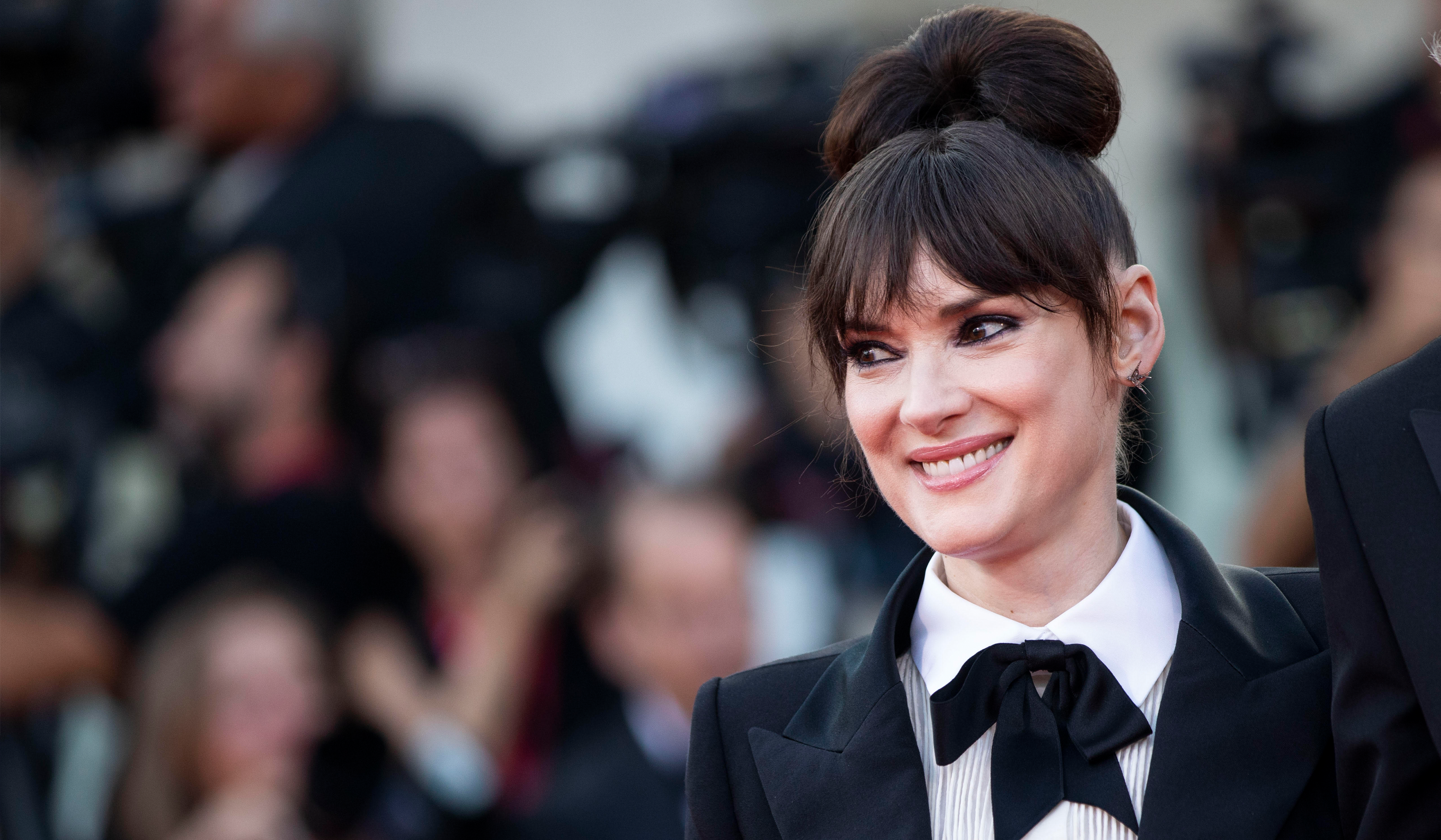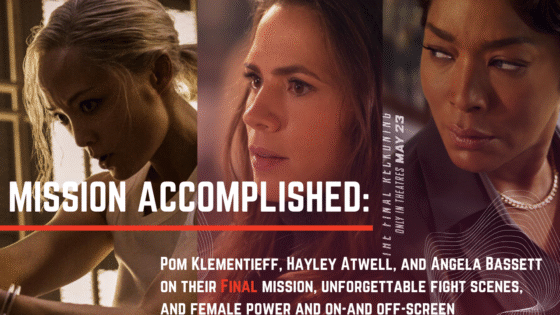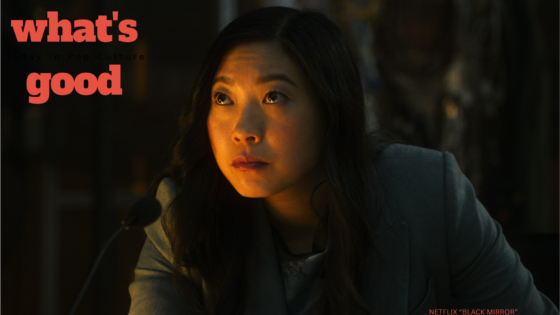Winona Ryder walks into the “Beetlejuice” New York press day draped in black, as if she’s stepped out of a shadow and into the light. Her hair, pulled back save for the big bangs framing her face, is a reminder of the 1980s when she first became a cultural icon. At 52, Ryder carries the same wide-eyed intensity that made her a star, but there’s something disarmingly genuine about her presence. Unlike many who’ve spent decades in Hollywood, she’s devoid of the polish that comes with years of media training. When she speaks, it’s with hesitation, her words occasionally tangled in thought, voice trailing off as she searches for the right phrase. There’s no artifice, just Winona, still as raw and unfiltered as ever.
It was 1988 when the world first met Lydia Deetz, the gothic teenager whose life was a perpetual dark night of the soul. Ryder was just 15, but she infused Lydia with a depth of melancholy that belied her years. “Beetlejuice” was a cinematic phenomenon, a Tim Burton fever dream brought to life with bizarre characters and surreal humor. But it was Ryder’s Lydia, peering out from behind her black lace veil, who became the heartbeat of the film, speaking to a generation of misfits who saw themselves in her.
Today, Ryder is back, revisiting Lydia in a sequel that many never expected would happen. Sitting across from her, one can’t help but wonder: What would the seasoned Winona Ryder say to that young girl who stepped into the strange and unusual world of “Beetlejuice” all those years ago?
Ryder pauses when asked this, laughs and looks at costar Justin Theroux with whom she is paired for the interview eyes, as if the question has pulled her back through the years. “I’ve thought about that question,” she says, her voice soft, almost wistful. “It was overwhelming back then, being part of something that became so big. When you’re young, you feel like you have to say yes to everything. You get exhausted, confused, and overwhelmed.” There’s a long pause before she continues, the words carrying the weight of hard-won wisdom. “I would definitely tell her that everything’s gonna be okay. Staying true to your path is what really matters.”
This is the essence of Ryder—a woman who has navigated the unforgiving tides of fame with a quiet resilience. Hers is a career marked by dizzying highs and soul-crushing lows, but through it all, she’s remained steadfastly herself. In an industry that devours the young and vulnerable, Ryder’s survival is a testament to her strength. It’s this authenticity that has kept her audience loyal, watching as she evolved from the girl next door to a figure who could be trusted to tell the truth, no matter how messy it might be.
Returning to Lydia wasn’t just about revisiting a role for Ryder; it was about confronting a piece of her own history. Lydia Deetz, the lonely girl who sought comfort in the supernatural, has grown up. In the sequel, she’s given a romantic partner—Rory, played by Justin Theroux. The idea of Lydia in a relationship seems almost antithetical to her character’s DNA. Ryder herself admits as much. “I always pictured her just, like, kind of up in the attic, doing her own thing,” she says, with that self-deprecating humor that has always been her hallmark.
Yet, there’s something about Theroux’s portrayal of Rory—a shady, codependent character with a twisted charm—that works. “It just worked,” Ryder reflects, as if surprised by the chemistry between Lydia and Rory. This new dimension to Lydia’s character is both jarring and fitting, a reminder that even the most independent spirits can find themselves entangled in the complexities of human connection.
But perhaps the most significant relationship in the sequel is the one between Lydia and her daughter, Astrid, played by Jenna Ortega. Ryder speaks of Ortega with a warmth that suggests something deeper than mere professional camaraderie. “She’s a great actress,” Ryder says, her voice filled with pride, the kind you might hear from a mentor who has watched their protégé grow. Their bond, forged in the quiet spaces between takes, transcends the screen, lending an authenticity to their mother-daughter dynamic that is palpable.
Ryder, no stranger to the pressures of fame—having experienced a resurgence with her role in “Stranger Things”—seems to have taken Ortega under her wing. “I wanted to be there for her,” she says, the protectiveness in her voice unmistakable. It’s as if she sees a reflection of her younger self in Ortega, thrust into the spotlight at a young age, navigating a world that can be both exhilarating and terrifying.
The world has changed since Ryder first became a star. Back then, if you wanted to see a movie, you went to the theater. Today, with the rise of streaming, actors are in people’s homes, on their phones, their presence constant and inescapable. “It can be a lot to handle,” Ryder acknowledges, her tone one of quiet concern. She knows what it’s like to be overwhelmed by fame, to feel like the world is watching your every move.
As Winona Ryder sits there, it’s clear that she’s not just revisiting Lydia Deetz—she’s revisiting herself. The girl she was, the woman she’s become, the actress who has spent her life walking the fine line between reality and the characters she portrays. If she could, maybe she would reach out to that young girl, the one who once hid behind black lace, and whisper, “Everything’s gonna be okay.” And in her return as Lydia Deetz, she does just that—not just for herself, but for anyone who’s ever felt like they didn’t quite belong. Ryder’s journey isn’t just about a character; it’s about finding strength in the strange and unusual, and discovering that, sometimes, the darkest places can lead you back to the light.






